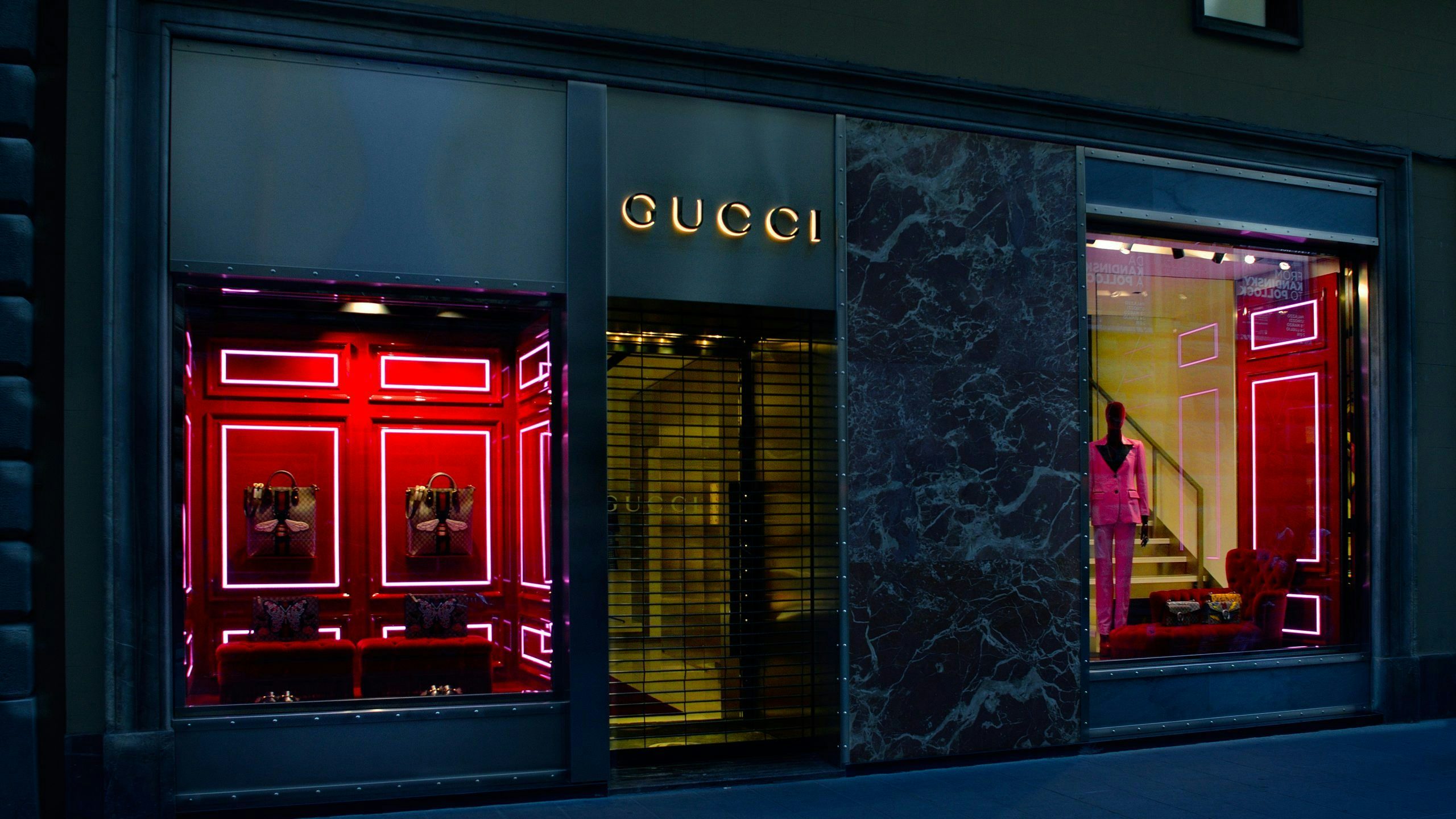China might be a “nation shaped in consumerism,” but that doesn’t necessarily mean Western-style consumerism. In fact, the country's cultural and social changes have led to a new context where global brands are negligible, and domestic players are threatening their supremacy. But make no mistake about it: The rise of local brands is not a phenomenon that happened overnight.
Inkstone points to research by Bain & Co. to show how, since 2016, foreign brands have grown their collective sales by 9 percent, while domestic brands grew by 15 percent during that time. Meanwhile, according to a report released by a think tank with the China Economic Information Service based on data from e-commerce platform JD.com, “the increase of total online orders of Chinese products was 8 percent higher than that of foreign brand products in 2018.”
In 2018, Forbes also highlighted how Chinese consumers had an increased affinity for homegrown luxury brands. “What remains somewhat under the radar is China’s growing clout as a luxury brand's incubator, not merely a country of luxury consumers,” said Christophe Caïs, a Forbes Councils member. “With Chinese buyers embracing homegrown brands, the big names of Western luxury might no longer carry the same weight only a few years from now.”
Today, Chinese luxury consumers continue to snub international brands, and they're becoming increasingly nationalistic. The ongoing trade war, accusations of intellectual property theft, and demands that the U.N. recognize China as the official origin of COVID-19 have made the US-China relationship highly dysfunctional. Consequently, it's not surprising that Chinese consumers are choosing patriotic purchases.
Sinophobia has also increased in the US, and Chinese consumers feel like they’ve become America’s scapegoats, getting blamed for an inevitable health crisis that they didn’t provoke. But grassroots nationalism is changing the conversation, and young, politically-engaged consumers are embracing domestic brands in response to current global events.
Not long ago, Chinese luxury buyers turned to domestic brands because they wanted to support local success stories. Now, they’ve added a moral element to their purchasing power. Promoting “Made in China” has become a personal choice that communicates a pro-identity stance. We saw this shift in the backlash against global brands that disrespected China’s identity or national sovereignty with boycotts on Dolce & Gabbana, Versace, Coach, and the NBA.
Let’s take a look at the reasons why even more consumers will soon by buying “Made in China” products rather than goods from global brands:
Domestic brands know the taste preferences of local consumers#
Let’s face it: Local brands can better determine what makes Chinese consumers tick, and they also have a better understanding of the local market.
Global brands arrive in China with standardized marketing campaigns, eager to win over customers’ hearts and minds. But instead of finding success, they often go from one blunder to another. Disappointing translations, in particular, are a common recurrence. For instance, Mercedes-Benz tried a rebranding in China under the name “Bensi.” But, unfortunately, the word sounds like “rush to die” in the local language — a thought no one wants to be associated with their sports car.
Meanwhile, Business Insiderreports that Nike released a special edition trainer that had the character “Fa” written on the left shoe and “Fu” on the right shoe. Separated, “Fa” means “Getting rich,” and “Fu” translates to “Fortune arrives.” But if you put the characters together, it reads “getting fat.”
As you can see, a single error can irrevocably damage a company’s reputation in China. Nevertheless, domestic players can avoid these pitfalls since they have built-in cultural sensitivity and much better market awareness.
The ability of small consumer brands to hyper-target local consumers allows them to move quickly and respond to consumer needs in a more timely fashion. For the buyer, this creates greater engagement and a more emotional connection. On the other hand, global brands tend to have a more bureaucratic and opaque style, so they are slower to react. This makes their messages feel impersonal and lackluster.
Local brands are reasonably priced and have good quality#
Long gone are the days when “Made in China” was “limited to low-level, low-tech, and cheap goods.” Through technological development, design innovation, and R & D, China has been upgrading its domestic products, giving them a winning edge in domestic sales. Consumers have responded to this change with enthusiasm, and both millennials and Gen Zers are expressing patriotism and pride via their acquisitions.
Annie Hou, vice-president of strategy at the marketing agency Ogilvy in Beijing, told the Financial Times that, in the minds of Chinese millennials, “domestic brands are no longer inferior to global brands.” But apart from these qualitative factors, price is also a consideration driving demand for locally made products. Domestic players can generate superior margins through lower price positioning, and since these brands can reduce costs, they can also emphasize pricing strategies. This game plan won’t work with global luxury retailers that refuse to consider price cuts or discounts.
The playing field will never be level, but the players and rules are constantly changing. In the global arena, Western brands and multinationals are still favored, but in China, these groups face serious credibility issues. Thus, domestic brands are mastering the rapidly changing environment and winning in China’s market.
Domestic brands can sell “patriotism”#
According to a survey conducted by the business advisory firm Brunswick Corporation, 56 percent of Chinese respondents said they would avoid buying American products to show their support for China. Meanwhile, a survey by Credit Suisse shows that over 90 percent of Chinese consumers between the ages of 18-29 are looking to buy electrical home appliances from local brands.
Rising patriotism and hostility toward the West are proving lucrative for local businesses, and some intuitive designers and domestic brands have been benefiting from the trend. For instance, the Chinese sportswear brand Li-Ning saw an incredible jump in its stock price in 2019, which isn’t surprising considering the patriotic designs promoted by the brand.
But, at the same time, many Chinese consumers see domestic technology companies like Huawei as enhanced versions of Western models. The South China Morning Post says that in 2019, when President Donald Trump signed the executive order on telecommunication security targeting Huawei, comments like “support Huawei” and “hang in there” became popular on Weibo.
On the whole, the good times in China seem to be over for American brands, and it’s doubtful that the Trump administration will amend its economic stance there. Meanwhile, US brands should prepare to pay a price for President Trump’s remarks about the country. In the end, it’s up to business and community leaders to educate the American public about the damage that comes from using words like “Wuhan virus.”
Two words can alienate a market of 1.4 billion consumers and cost the American economy billions of dollars a year in taxes and jobs. Or, as David Frum in The Atlantic put it: “Trump’s ‘I order, you salute’ model of leadership will end at best in failure and at worst in defeat.”

